-
Thursday, 28 June - Nouvel Building, Protocol Room, (Floor 3, enter through terrace)
Session 1
6pm
Situated Unwellness or How Mental Diseases Have Been Privatized
Round table discussion. Participants: Manuel Desviat, Flipas GAM, Hierbabuena y La Revolución Delirante.Many of our regrets and suffering, that move from the physical to the psychological, have their beginnings in the social realm, free from the influence of biology. This is an intuition that the anti-psychiatric movement put into practice during the 60s and 70s, turning the fight against involuntary commitment and violence of the clinic into a battlefield. From the activism of mutual support groups to the care of new professional collectives that reject medicalization as the lone answer to the illnesses we suffer, this round table seeks to situate a series of reflections on a concrete form of governance that represses the right to be different.
8pm
Fake Therapy
A practice proposed by Valentina Desideri with Ainhoa Hernández y Andrea Rodrigo. -
Sunday, 1 July - Sabatini Building, Auditorium
Session 2
7pm
San Clemente, Raymond Depardon and Sophie Ristelhueber, France, 1981, B / W, VOSE, 100 '
Presented by Alfredo AracilThe year 1980, in which this film was filmed, marks the end of a decade of anti-asylum struggles and the beginning of what has been called control societies, with their surveillance and molecular regulation spaces. Raymond Depardon and Sophie Ristelhueber film corridors and common spaces of the last days of a psychiatric hospital on the island of San Clemente, near Venice. This hospital appears as the emblem of an era where therapy inevitably involves confinement, violence and marginalization. The documentary, shot during the carnival period, portrays the daily environment of patients and relatives, as well as its links with medical personnel in the labyrinth of the Venetian hospital.
-
Monday 2 July - Sabatini Building, Auditorium
Session 3
7pm
Screening and debate on the unedited documentary in progress Estado de malestar (Unwellness State) by María Ruido and the InsPiradas collective.María Ruido defends film as a space to reflect on the intersection between neo-liberal capitalism and mental health. Her new film, Estado de malestar ((In)adaptación, sintomatología social y enfermedad en tiempos del realismo capitalista), still in progress, uses texts by Franco Berardi Bifo, Mark Fisher, Santiago López Petit, and Marta Plaza, among others, as its foundation, as well as conversations with people diagnosed and undiagnosed with mental illnesses and psychological suffering, to which the artist includes her own experience. In this session, Ruido will share with the audience some of the images from her project, to be finished in November 2018. The feminist collective InsPiradas, which works with mutual support and care as focal points, will participate in the debate.
-
Wednesday 4 July - Sabatini Building, Auditorium
Session 4
6pm
One Unyielding Force: to Politize Unwellness
Lecture by Santiago López-Petit. Presented by Franco CastignaniWork means, within the framework of neo-liberalism, a form of political control that demands an obligation, sometimes painful, to “have a life” to manage. In a conversation open to debate with the audience, Santiago López-Petit presents his latest book, El gesto absoluto. El caso Pablo Molano: una muerte política (Pepitas de Calabaza, Logroño, 2018), about the intersection between politics and illness, and on the political nature of suicide.
8pm
Our own homeless
Lecture-performance by Liv Schulmann -
Thursday 5 July - Sabatini Building, Auditorium
Session 5
7pm
Film screening Animación en la sala de espera, (Lively Waiting Room) Carlos Rodríguez Sanz and Manuel Coronado. Spain, 1981, color, In Spanish, 78 min.
Presented by Manuel Desviat and Alfredo Aracil.This documentary was filmed in the former mental hospital in Leganés, today the Psychiatric Institute, between 1977 and 1979, during the transformation process of mental health assistance, which, during the first years of democratic transition post-Franco, resulted in a collegiate direction and of assembly. In line with other films that have entered in the daily lives of mental health patients and users of mental health, Animación en la sala de espera installs a camera in the institution's day-to-day life, also going outside its walls in search of forms of affection and bonds found in minimal gestures and repetition.
-
Friday 6 July - Nouvel Building, Protocol Room, (Floor 3, enter through terrace)
Session 6
5pm
Round table discussion
With the participation of: to be confirmed, possibly Franco Castignani, Belén Solá (La Rara Troupe), participants of the program’s reading group, Amador Fernández-Savater.6:30pm
How to live by our won – how to live together
Lecture by Peter Pál PelbartBeginning with a meeting with Gilles Deleuze in the early 1980s, Peter Pál Pelbart reflects on how to how to combine the desire to be together when we are not left sufficiently alone, in a crossroads of references and tones that span from Roland Barthes' text this program takes its title from to Jean Oury's experiences, director along with Félix Guattari of La Borde clinic. How does one sustain a collective that maintains a dimension of individuality? How does one create heterogeneous spaces, with its own tonalities and different atmospheres, in which each one is connected in its own way? How does one maintain an availability capable of promoting encounters without imposing them, or attention that permits contact and preserves otherness? How does one make room for chance, without planning for it? How does one sustain a “gentleness” that allows for the emergency of speaking there, where the affective void prospers. These are some of the questions that emerge from this philosopher's research, his conception of health beyond diagnoses and the medical paradigm.
8pm
Schizo pic-nic
Performance, Florencia Rodríguez Giles. Museum tour, beginning at Nouvel Building, Protocol Room
A Possible Strength: Towards a Poietics of Living Together
Round table, performance, conference, and film screening series
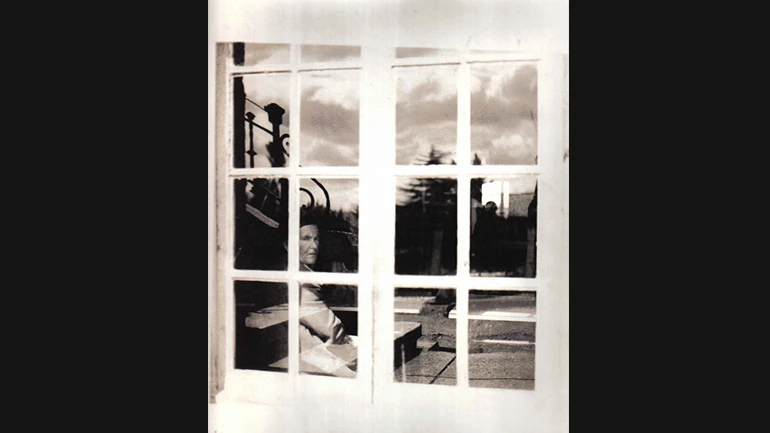
Held on 28 Jun 2018
This program emerges out of the need to bring together ideas on the illnesses we suffer from, at a time when the welfare state has given way to a type of governance centered on the proliferation of new disorders, diseases, and medications. A possible strength: towards a “poietics” of living together brings together artists, theorists, and activists, in order to share experiences on a number of care networks, non-governmental and communal forms of organization, situated knowledge and ways of life that, after the anti-psychiatric movements of the 1970s, operate as an alternative to medical devices against unwellness, inasmuch as techniques for the repression of subjectivity, desires, and pleasures that do not adhere to what is considered normal. The known conditions of anxiety, stress, depression, panic, or attention deficit disorder, as well as the emergence of new illnesses such as fibromyalgia, or other forms of chronic exhaustion, are related, without a doubt, to phenomena such as the precariousness or absence of salaried work, in both psychological and physical aspects. As such, the success of drug treatments is measured by its coercive efficacy and by the empiric skill with which they transform the smallest somatization into a stable diagnosis table.
The growing critical attitude and a new way of understanding clinical practice make up two complementary forces that allow us to envision a therapeutic outlook from which to work on fears and challenges that stem from the need to live together, and that does not end at the medical model, nor at rehabilitating behavior, nor at integrating those who are different into the mode of existence that neo-liberalism considers desirable. It is not about breaking down personal suffering into mere biology, as part of neuroscience does, but rather about investigating political and social conditions that make torture, seclusion, and emotional isolation possible, more secret and commonplace everyday, almost trivial, and justified by medical reasons. In that sense, A possible strength: towards a “poietics” of living together seeks to free unwellness from being appropriated by medical science, and at the same time releasing the power of language and knowledge of the living body. In other words, it is so unwellness to not be the heartbreaking individual experience of the alienated, eccentric, and marginalized. Beginning with activities of varied formats (round table discussions, conferences, screenings, performances, and reading sessions), the program also wants the truth from every damaged body, its suffering, and the vulnerability it causes, to become visible to the public eye, as a personal and collective euphoria, to affect the largest number of people possible, until it becomes an experience that imagines new ways of living and negotiating, where every emotional crisis or catastrophe is always met with the creation of a new possible world, as suggested by Peter Pál Pelbart, with conditions conducive to subjective change.
This program is complemented by the A Possible Strength Reading group, that during June and July will work with texts related to the group’s principal theses.
Program organizer
Alfredo Aracil
Organised by
Museo Reina Sofía as part of the Midstream. New ways of audience development in contemporary art project

Participants
Alfredo Aracil. Curator, arts manager, and researcher. He has collaborated with magazines such as Experimenta, LUMIÈRE and Nosotros. His research concentrates on the transformation of psychiatry in Spain at the end of the 1970s (doctoral thesis).
Franco Castignani.Political expert and independent researcher. His principal areas of interest analyze mutations in contemporary labor, new sensibilities, and the politicization of illness.
Valentina DesideriArtist, researcher, and writer residing in Amsterdam, where she has launched the performative practices Fake Therapy and Political Therapy, as well as co-organizing the Performing Arts Forum.
Manuel Desviat. Mental health professional, he has worked in clinics, organization and services management, teaching, and research. Author of books such as Cohabitar la diferencia: de la reforma psiquiátrica a la salud mental colectiva (Traficantes de sueños, Madrid, 2016).
FLIPAS/GAM. Mutual support group from Madrid that works for the understanding of mental health from a socio-political activism standpoint. They fight against label, social discrimination, manipulation, and violence.
Ainhoa Hernández Escudero and Andrea Rodrigo. Together they think about complicity devices and ways to produce knowledge and sensibility, taking an interest in artistic investigation, curation, and contemporary choreography. They are involved in contexts such as Performing Arts Forum (St. Erme, France). They have collaborated with Valentina Desideri on a piece undertaken along with Corazón del Sol for the exhibition Cale, cale, cale! Caale!!!, curated by Juan Canela in Tabakalera (Donostia).
Hierbabuena. Organization from Asturias made up of and for people who understand mental suffering. Since 2000 it works to spread and improve knowledge society has about these types of problems and experiences, free from discrimination and prejudice.
InsPiradas. Collective from Madrid with a relationship to exclusively feminist mental health. Based on first-person experiences to denounce a hetero-patriarchal capitalist system that harms mental health.
La Rara Troupe. Thought, reflection, and creation collective on mental health that emerged in 2012 out of the Department for Education and Cultural Action at the Museum of Contemporary Art in León (MUSAC). Composed of people diagnosed and undiagnosed, its action is based on using audiovisual creation from self-representation to first-person narration.
La Revolución Delirante. Critical movement made up of mental health professionals started in 2011 in Valladolid. It is principally directed at the new generations of professionals with three objectives: promote a broad, independent, and rigorous education of these professionals; understand the aid and position of these professionals in the context of the abandonment of the position of power and social control with which the “psi” disciplines were born; take these ideas to society to neutralize the social stigma associated with so-called mental illness. Communicate that mental illness is a way of being in the world that should be respected and as such, give the mentally ill back their status of citizen.
Santiago López-Petit. Chemist and philosopher, he is a follower of Foucault and Deleuze's French post-structuralism, and Toni Negri's Italian Marxism, among others. He has spurred on collective initiatives such as Dinero gratis and Espai en blanc, that bring together radical criticism with experimentaion. He has recently published Acaba de publicar El gesto absoluto. El caso pablo Molano. Una muerte política (Pepitas de Calabaza, Logroño, 2018).
Peter Pál Pelbart. Philosopher, essayist, and professor at the PUC-SP (Pontifícia Universidade Católica de São Paulo). He is the author of Filosofía de la deserción (Tinta Limón, 2009), the notebook “Carta aberta aos secundaristas” in Caixa Pandemia de Cordéis (n-1 Edicões, São Paulo, 2016), and Cartography of Exhaustion: Nihilism inside out (Univocal, Minneapolis, 2015).
Florencia Rodríguez Giles. Artist specializing in painting and performance. Her research has for many years examined the different states of matter and of the psyche. María Ruido. Visual artist, researcher, and cultural producer. She develops interdisciplinary projects on stereotypes in labor in post-Fordist capitalism and on the construction of memory and its relation with narrative forms of history.
Liv Schulman. Artist and writer. She has coordinated and directed performative practice series related to writing, such as Triple Frontera, and the publication of the art and poetry fanzine Pobre, Feo, and Elegant. She writes in different platforms such as Emargé, Allotrope, and Artists talking.
Más actividades

Difficulty. Forms and Political Effects of Deviation in Writing and Contemporary Art
23 February – 14 December 2026 – Check programme
Difficulty. Forms and Political Effects of Deviation in Writing and Contemporary Art is a study group aligned towards thinking about how certain contemporary artistic and cultural practices resist the referentiality that dominates the logics of production and the consumption of present-day art. At the centre of this proposal are the concepts of difficulty and deviation, under which it brings together any procedure capable of preventing artistic forms from being absorbed by a meaning that appears previous to and independent from its expression. By ensuring the perceptibility of their languages, difficulty invites us to think of meaning as the effect of a signifying tension; that is, as a productive and creative activity which, from the materiality of art objects, frees aesthetic experience from the representational mandate and those who participate in it from the passiveness associated with tasks of mimesis and decoding.
The economy of the referential norm translates the social logic of capitalism, where insidious forms of capturing subjectivity and meaning operate. In the early 1980s, and adopting a Marxist framework, poet Ron Silliman highlighted how this logic entailed separating language from any mark, gesture, script, form or syntax that might link it to the conditions of its production, rendering it fetichised (as if without a subject) and alienating its users in a use for which they are not responsible. This double dispossession encodes the political strategy of referential objectivity: with no subject and no trace of its own consistency, language is merely an object, that reality in which it disappears.
The political uses of referentiality, more sophisticated today than ever before, sustain the neoliberal-extractivist phase of capitalism that crosses through present-day societies politically, economically and aesthetically. Against them, fugitive artistic practices emerge which, drawing from Black and Queer studies and other subaltern critical positions, reject the objective limits of what exists, invent forms to name what lies outside what has already been named, and return to subjects the capacity to participate in processes of emission and interpretation.
Read from the standpoint of artistic work, the objective capture of referentiality may be called transparency. Viewed from a social contract that reproduces inequality in fixed identity positions, transparent in this objectivity are, precisely, the discourses that maintain the status quo of domination. Opposite the inferno of these discourses, this group aims to collectively explore, through deviant or fugitive works, the paradise of language that Monique Wittig encountered in the estranged practices of literature. For the political potency of difficulty — that is, its contribution to the utopia of a free language among equals — depends on making visible, first, its own deviations; from there, the norm that those deviations transgress; and finally, the narrowness of a norm which in no way exhausts the possibilities ofsaying, signifying, referring and producing a world.
From this denouncement of referential alienation, fetishisation and capture, Difficulty. Forms and Political Effects of Deviation in Writing and Contemporary Art turns its attention to the strategies of resistance deployed by contemporary artists and poets. Its interest is directed towards proposals as evidently difficult or evasive as those of Gertrude Stein, Lyn Hejinian, Theresa Hak Kyung Cha, Kameelah Janan Rasheed, Kathy Acker, María Salgado and Ricardo Carreira, and as seemingly simple as those of Fernanda Laguna, Felix Gonzalez Torres and Cecilia Vicuña, among other examples that can be added according to the desires and dynamics of the group.
The ten study group sessions, held between February and December, combine theoretical seminars, work with artworks from the Museo Reina Sofía’s Collections and exhibitions, reading workshops and public programs. All these formats serve as spaces of encounter to think commonly about certain problems of poetics — that is, certain political questions — of contemporary writing and art.
Difficulty. Forms and Political Effects of Deviation in Writing and Contemporary Art inaugurates the research line Goodbye, Representation, through which the Museo Reina Sofía’s Studies Directorship seeks to explore the emergence of contemporary artistic and cultural practices which move away from representation as a dominant aesthetic-political strategy and redirect their attention toward artistic languages that question the tendency to point, name and fix, advocating instead for fugitive aesthetics. Over its three-year duration, this research line materializes in study groups, seminars, screenings and other forms of public programming.

CLINIC 2628. A Community of Writing and Research in the Arts
February – October 2026
Clinic 2628 is a project which supports and brings together writings which stem from the intention to offer a space and sustainable time for research work in art and culture. Framed within an academic context which is increasingly less receptive to the forms in which thinking happens and is expressed, the aim is to rescue the academic from its neoliberal trappings and thus recover the alliance between precision and intuition, work and desire. A further goal is to return writing to a commons which makes this possible through the monitoring of processes and the collectivisation of ideas, stances, references and strategies.
The endeavour, rooted in a collaboration between the Museo Reina Sofía’s Studies Directorship and the Artea research group, via the i+D Experimenta project, is shaped by three annual editions conceived as spaces of experimentation, discussion and a demonstration of writings critical of what is put forward by today’s academia.
What forces, forms and processes are at play when writing about art and aesthetics? In academia, in museums and in other cultural institutions, the practice of writing is traversed by productivist logics which jeopardise rhythms of research and experimentation. The imposition of both scientism inherent in the structure of “the paper” and the quantifying of results which demand a criterion of quality and visibility sterilise and smoothen, from the outset, the coarseness that is particular to writing understood from the concrete part of language: phonic, graphic, syntactic and grammatical resistance connecting the language user to the community the language unites and activates. They also sterilise the roughness enmeshed in the same desire to write, the intuitive, clear and confusing pathways that once again connect the writer to those reading and writing, participating in a common good that is at once discovered and produced.
The progressive commercialisation of knowledge propelled by cognitive capitalism moves further away from the research and production of knowledge in artworks and artistic languages and practices. The work of curators and archive, criticism, performances and essays formerly saw a horizon of formal and emotional possibilities, of imagination that was much broader when not developed in circumstances of competition, indexing and impact. Today, would it be possible to regain, critically not nostalgically, these ways; namely, recovering by forms, and by written forms, the proximity between art thinking and its objects? How to write in another way, to another rhythm, with no more demands than those with which an artwork moves towards different ways of seeing, reading and being in the world?

Cultural Work
Thursday, 12 February 2026 – 5:30pm
This series is organised by equipoMotor, a group of teenagers, young people and older people who have participated in the Museo Reina Sofía’s previous community education projects, and is structured around four themed blocks that pivot on the monstrous.
Session number two looks to approach film as a place from which cultural work is made visible and processes of production engage in dialogue with artistic creation. From this premise, the session focuses on exploring how audiovisual content is produced, assembled and distributed, from the hands that handle the images to the bodies that participate in its circulation. The aim is to reflect on the invisible effort, precarity and forms of collaboration that uphold cultural life, that transform the filmic experience into an act that recognises and cares for common work.
![Basel Abbas y Ruanne Abou-Rahme, At Those Terrifying Frontiers Where the Existence and Disappearance of People Fade Into Each Other [En esas fronteras aterradoras donde la existencia y la desaparición de personas se disuelven entre sí], 2019](https://recursos.museoreinasofia.es/styles/small_landscape/public/Colecci%C3%B3n/abbasabourahme.png.webp)
Gaza and Aestheticide
Tuesday February 10, 2026 – 16:00 h
This seminar examines the systematic destruction of Palestinian collective sensibility — what we might call “aestheticide” — that has accompanied Israel’s genocide and ecocide in Gaza, and considers the conditions of artistic practice in its aftermath. Over more than two years, the demolition of universities, archives, museums, and libraries has not only erased cultural and intellectual infrastructure but has also targeted the very possibility of representation itself. The destruction of a people has been accompanied by the destruction of their image, their history, and their capacity to be known: reportage, scholarship, and cultural memory have been deliberately undermined, with media institutions, universities, and museums often complicit in this repression. Gaza consequently functions as a rehearsal space for a possible global future — of fascism, post-liberal authoritarianism, militarized borders, and AI-enabled warfare —, a laboratory for an emerging world order. What, then, becomes of critical analysis and resistance under these conditions? And what becomes of aesthetics and politics?
This three-hour seminar engages in dialogue with a broader line of work on the climate emergency and decolonial perspectives developed within the Museum of the Commons project (2023–2026) of the L’Internationale network, of which the Museo Reina Sofía is a member; as well as with some of the questions that animate the study group Aesthetics of Peace and Desertion Tactics. Finally, it is also embedded in a wider strategy of support for and commitment to the artistic and discursive practices of Palestinian artists and cultural practitioners, most clearly reflected in the TEJA network.
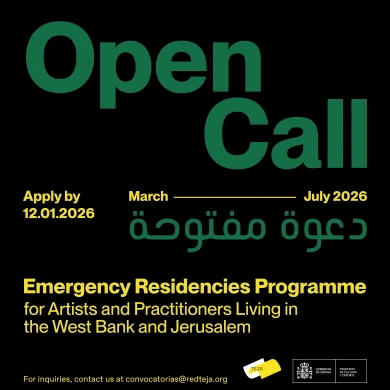
TEJA 2026. Open Call for Emergency Art Residencies
Proposal submission until 12 January, 2026
TEJA / Red de espacios culturales en apoyo a situaciones de emergencia [Network of Cultural Spaces in Support of Emergency Situations] has the mission to promote transnational cooperation by offering temporary art residencies to artists and cultural practitioners who find themselves in complex socio-political situations in their countries of origin. During their stay in Spain, residents receive accommodation, legal and psychological counseling, and access to a network of organizations and professionals with whom they can share, develop, and continue with their creative projects. The goal is to provide a safe and stimulating environment where artists can continue their work despite adverse circumstances and generate dialogue spaces that ensure freedom of expression through joint activities both in Spain and with international collaborators.
During 2026, TEJA hosts three new residencies, each lasting three months, dedicated to supporting artists and cultural practitioners residing in the West Bank and Jerusalem. In addition, in the second half of the year, TEJA hosts three additional residencies for Gazan artists, which are offered by invitation (as Spain is currently unable to facilitate evacuations from Gaza, these invitations are coordinated through France). These residencies aim to provide a stable, creative environment and foster artistic exchange in the face of ongoing adversities. Through this new program, TEJA reaffirms its commitment to amplifying Palestinian voices and empowering artists as they navigate these turbulent times.
The selection is carried out by the TEJA network in close collaboration with each hosting partner. This year the hosting partners are: La Escocesa (Barcelona), hablarenarte / Planta Alta (Madrid), Espositivo (Madrid), Institute for Postnatural Studies (Madrid), Casa Árabe (Córdoba). The selection prioritizes the artist’s personal and professional situation first, and then the alignment with the practices and themes of the hosting spaces. Proposal submission deadline is January 12th, 2026, 23:59 h.
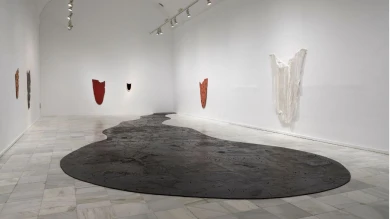
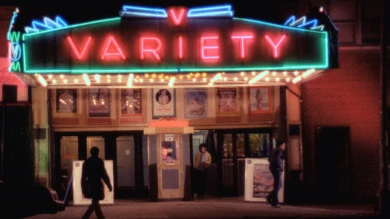
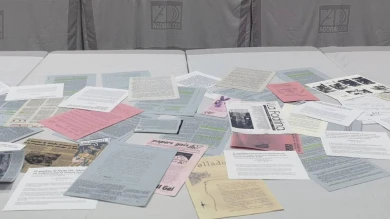
![Miguel Brieva, ilustración de la novela infantil Manuela y los Cakirukos (Reservoir Books, 2022) [izquierda] y Cibeles no conduzcas, 2023 [derecha]. Cortesía del artista](https://recursos.museoreinasofia.es/styles/small_landscape/public/Actividades/ecologias_del_deseo_utopico.jpg.webp)
![Ángel Alonso, Charbon [Carbón], 1964. Museo Reina Sofía](https://recursos.museoreinasofia.es/styles/small_landscape/public/Actividades/perspectivas_ecoambientales.jpg.webp)